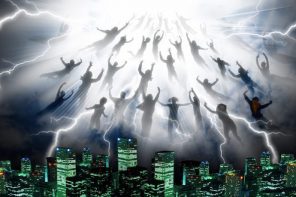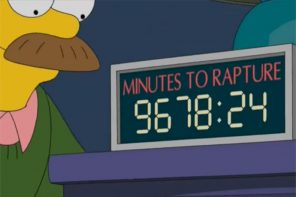A 2008 hidden-camera video of a perturbed Mitt Romney discussing Mormonism with an ultra-conservative Iowa talk radio host named Jan Mickelson started making the rounds again late last week, and now, according to Politico.com, it has gone “viral.”
Prickly and irritated, Romney pushes back when Mickelson challenges him on his view of the end-times and whether Jesus Christ will reign from Jerusalem or a New Jerusalem in the Americas. “I understand my faith better than you do,” says Romney.
“I’m not sure,” Mickelson says.
Also pressed on LDS doctrine on abortion, Romney says, “You don’t understand my faith like I do,” very much on the defensive. “Having been a leader in my Church—a bishop and a stake president—I understand my Church better than you do.” Romney also goes on to explain that pro-choice Mormons are welcome in the Church, that there are plenty of Mormon Democrats, and that his own stance on abortion rights is “not a Mormon thing.”
“I’m not running as a Mormon and I get tired of coming on the air and having it all be about Mormon,” he concludes.
What to make of this video and its resurfacing now, just hours before the election?
1. Whoever pushed this video out again wants Romney to lose. The video offers some of the only footage from the long campaign season (2007–2012) of Romney talking about his religion.
In it, Romney does all of the things he’s tried not to do during most of the campaign. He talks about his role as a local LDS Church leader. He talks about Salt Lake City and Church policy. He talks theology. He talks about ultra-conservative LDS writer Cleon Skousen. He talks about violent end-of-days scenarios with a sureness and vigor some may find unsettling. And whoever has pushed this video out again believes that those elements will turn off non-Mormons, non-Christians, and the non-religious, and will motivate liberals to vote.
2. Mitt Romney espouses fairly orthodox Mormon beliefs. And he professes them as a literal believer.
3. The Mormon version of the end times is generally similar to evangelical Christianity, as Sarah Posner noted here.
Yes, there is an additional historic Mormon teaching that the faithful will build a “New Jerusalem” on the American continent. It’s a belief that has not gotten much airtime during Church-wide General Conferences in recent years, which may be a signal that it is receding in its centrality from day-to-day faith practice. But it remains a part of the Mormon narrative of sacred history.
4. Mormons don’t like it when people with an agenda interrogate what it really means to be Mormon.
Mormon doctrine is complex and there have been subtle shifts in emphasis over time. Recently, I heard a top Mormon historian compare doctrine to a cloud: there are some fairly central points of Mormon belief and lots of more marginal ones. But the faith is actually more about orthopraxy than orthodoxy—living as an observant Mormon, showing up on Sundays, doing your Church-assigned job (since we have no clergy).
When an ultra-conservative (non-Mormon) political kingmaker has you in the hot seat and starts pushing on what’s really doctrine, any Mormon with a generation or more in the tradition knows that it’s not going to be a friendly conversation. Especially in Iowa where, some of the Romney sons recall, voters at rallies wouldn’t even shake their hands because they were LDS.
Plus, who wouldn’t be a bit peeved if a stranger claimed to know more about your own faith than you did?
5. Mitt Romney can get prickly—even downright unpleasant—when his authority is questioned.
But we knew that already.



